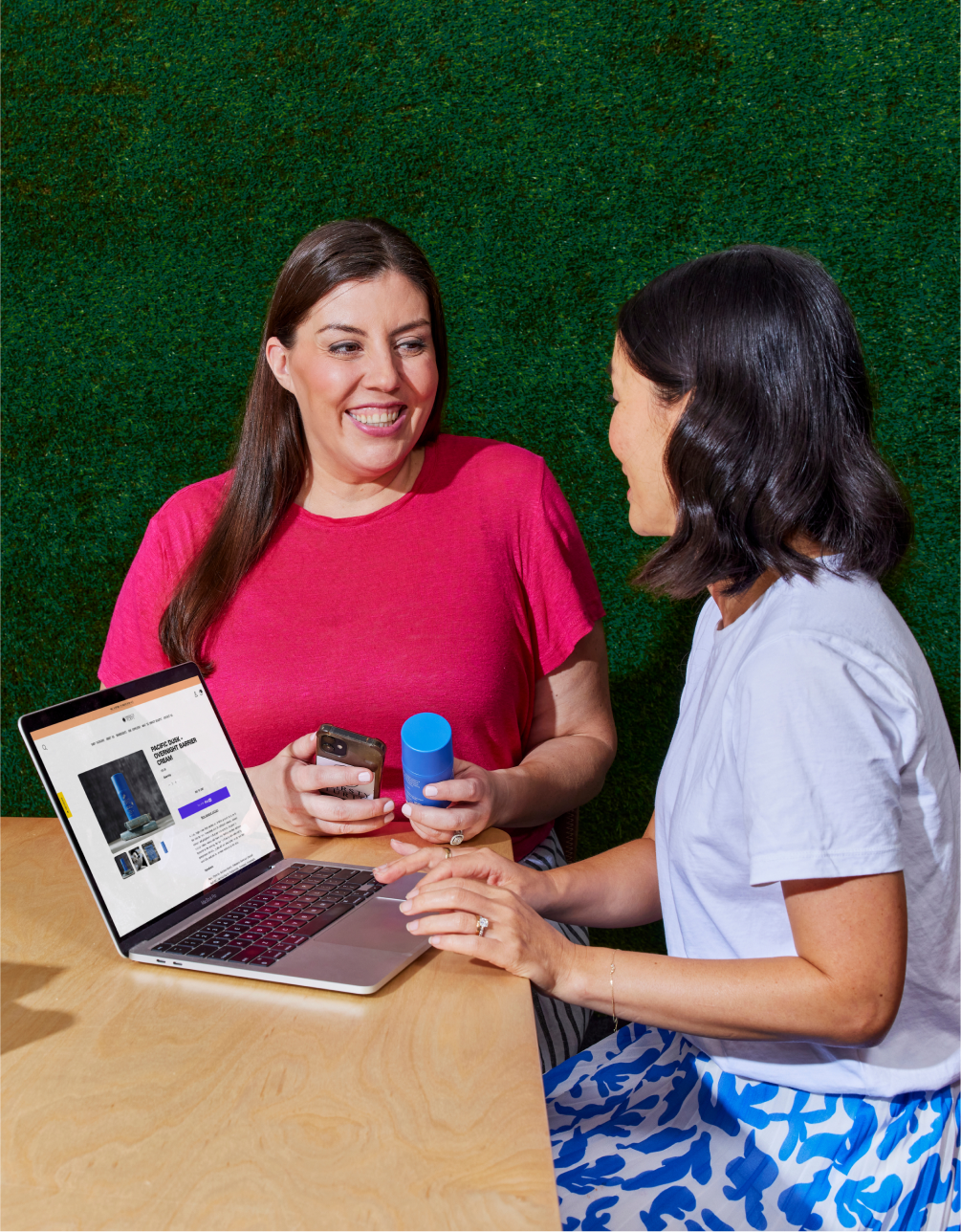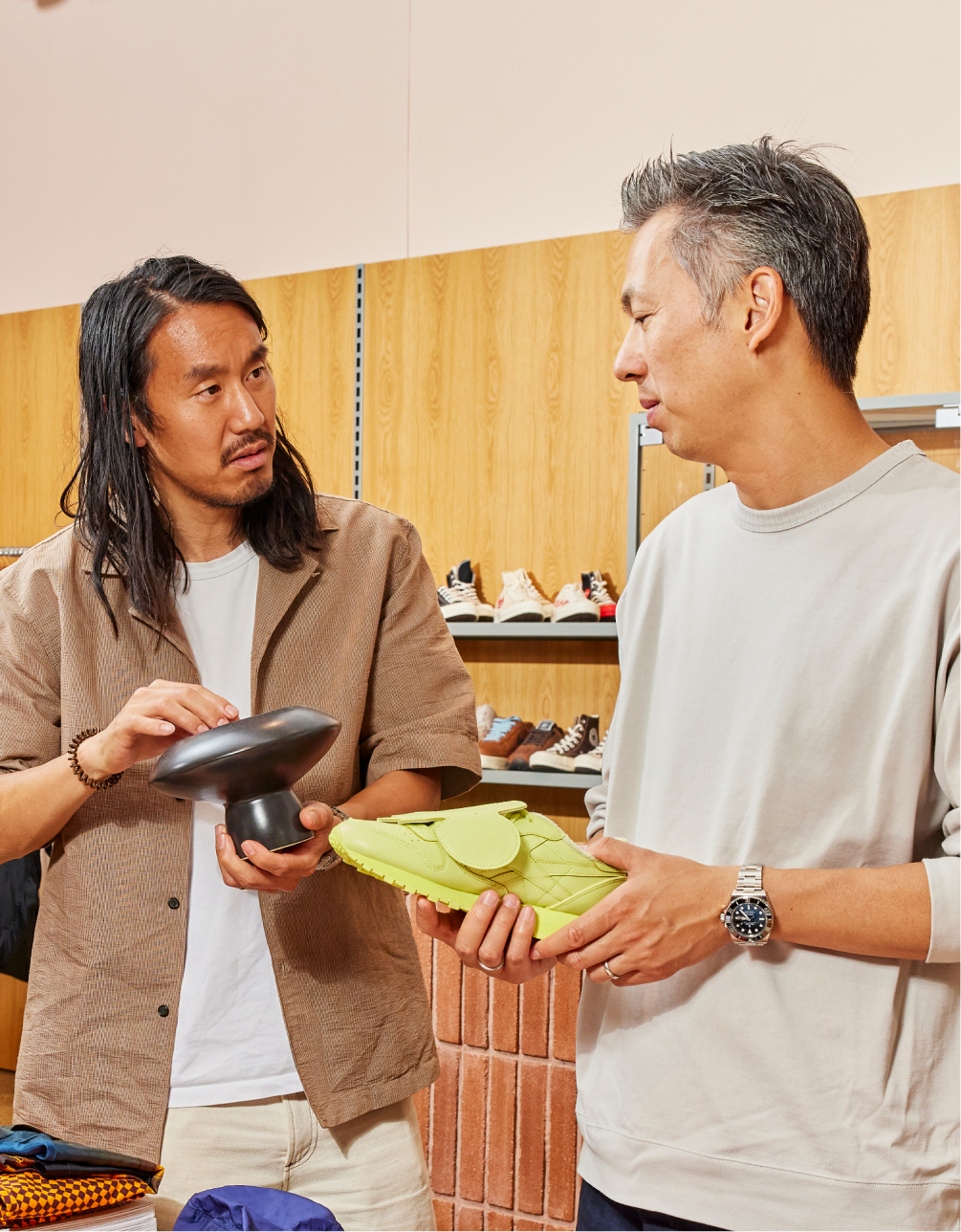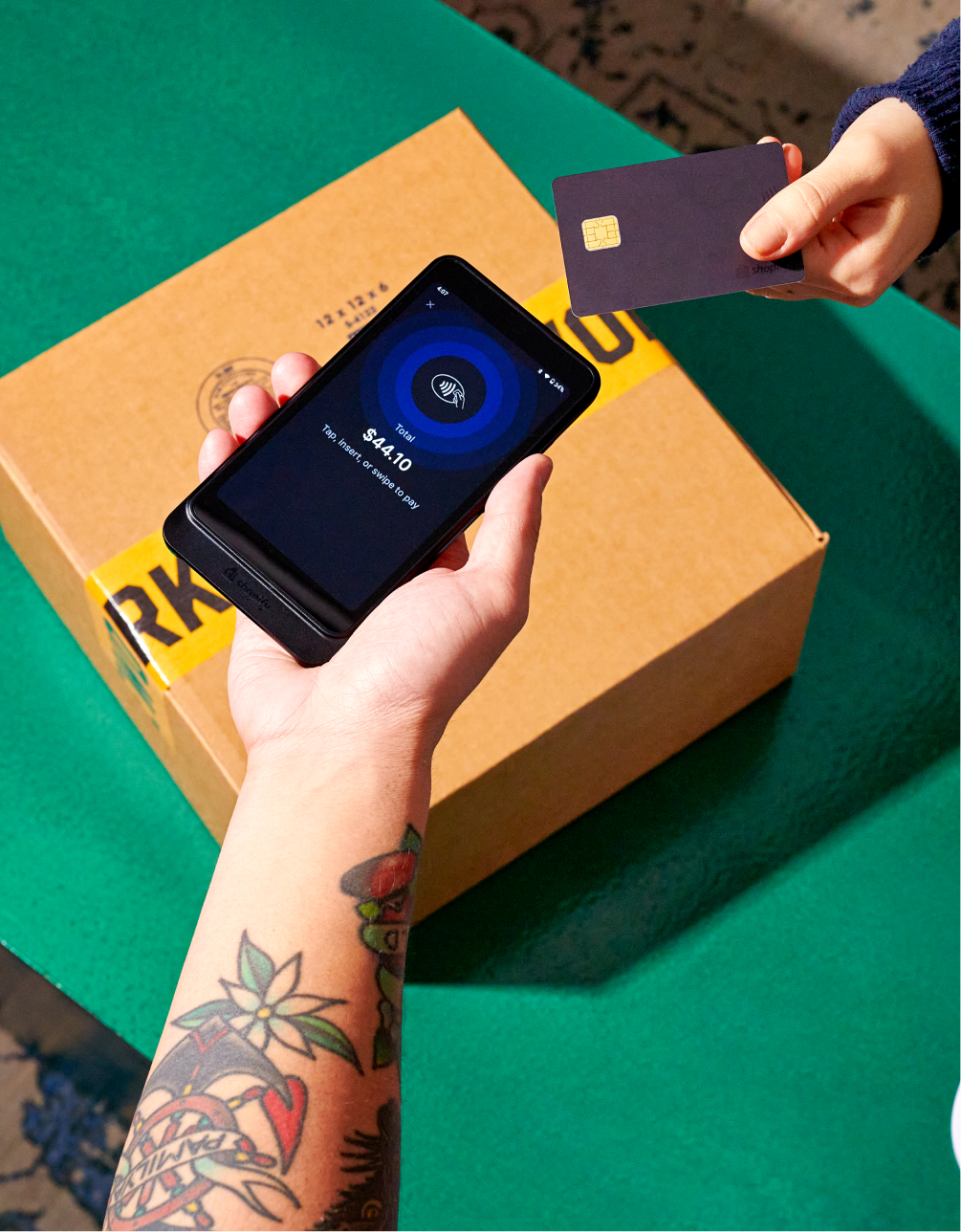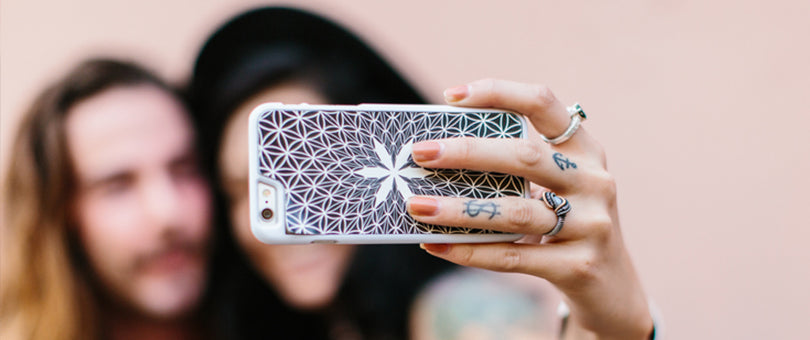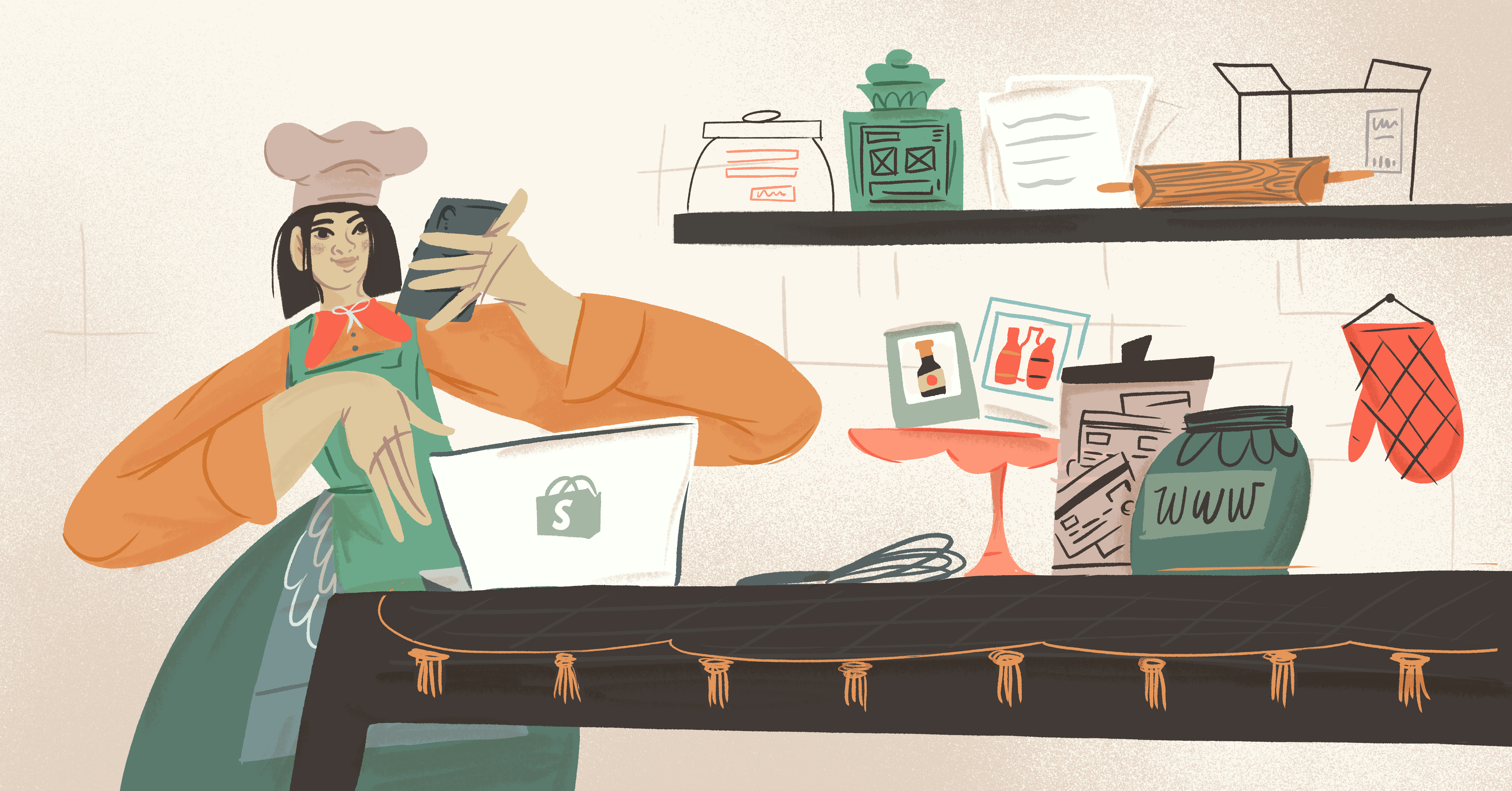Ever heard of breakfast bars? Well, you may know what it is now but that wasn’t the case back in 2014.
It wouldn’t be wrong to say that YogaBar introduced the Indian audience to the category of nutritional bars. “There’s a satisfaction in being the first to create something”, says Suhasini, Co-founder and CEO of YogaBar. Their passion led to their success as they ventured off into the unknown terrain of entrepreneurship.
With the help of some incredible collaborators, two sisters built YogaBar from scratch — right from creating the healthy, delicious recipes to designing their machines and making their first sale. The company now employs 280 people who chase the same vision that fueled Anindita and Suhasini Sampath.

We talked to the founders to learn what inspired them to create YogaBar and how Shopify helped them in their online journey.
The inception of YogaBar
On an uneventful day in New York, Anindita, Co-founder and CEO of YogaBar, mused out loud, “If I had a protein bar, I’d call it Yogabar”. And Suhasini decided the name was good enough to be trademarked—four years before the brand was actually launched.
When the sister duo eventually decided to start the business, they were faced with two real issues.
The first was getting the product right. After almost 500 rounds of testing, Anindita and Suhasini got the combination of taste and nutrition they were looking for. But that led to the second challenge - selling their products.
Forget a nutritional bar range, even healthy living was not a big concept back in 2014. So, YogaBar not only had to create awareness about its product offerings, but also had to educate people about the category and nutrition in general. And they had to find a way to be present in front of their target audience, which was much easier to do offline than online back then.
And so, they started showcasing their products at places that health conscious people would frequent - like yoga studios. In fact, they made their first sale at a yoga class! Soon they began retailing their products at stores and the brand garnered 90% of its revenue through offline sales.
While they had a website for presence, they weren’t planning to shift focus to online channels, until the pandemic struck.
Before and After: A lift of 500%
The pandemic caused a lot of disruption, with offline sales being affected due to the lockdown and other restrictions. However, online sales of essential items was allowed during the lockdown and food items fell into that category.
With this shift in market, the brand considered it their priority to invest in driving online sales. Their pivot to online sales reaped magnificent results, with sales increasing by 500% just within a few months of the lockdown, a significant feat in an industry saddled with single-digit growth.
Scaling a nutritional food brand with Shopify
The idea of creating a website may be overwhelming for someone unfamiliar with technical concepts. And finding a reliable online selling platform can be equally exhaustive. So, when you get on a platform that works, you wouldn’t want to leave.
This is exactly what happened with Yogabar. YogaBar has been associated with Shopify since its initial days. Since almost day 1, their online store has been on Shopify. Although there weren’t focused efforts to sell online, YogaBar had a website since their initial days, and continue to refine it as they scale.

“We’ve had 99 problems, but our website has never been one”, quips Suhasini.
The brand is now gearing up to scale its website sales 5x and is already confident about its ability to handle that jump, thanks to Shopify’s reliable platform and easily integrable plugins.
Suhasini discussed how Shopify has made online selling easier for YogaBar. “Shopify is seamless. It's easy to use and we have never experienced a breakdown.”
Besides the host of integrations for payments, customer engagement, and whatnot, they found Shopify easy-to-navigate and quick to understand. The instructional videos, detailed help pages and articles helped them figure out the platform’s tools and functionalities. And, of course, a dedicated support team too.
The switch to Shopify did not require them to extensively train their staff either, as the platform was smooth and easy to understand. “The staff was able to use Shopify to monitor the operational activities, including tracking order requests and dispatch information, with ease.” This meant operational benefits from the time they started their online store!
For an FMCG brand like YogaBar that operates on relatively thin gross margins, monitoring sales figures, cashflows, and other performance metrics is key to maintaining operational efficiency, and consequently profitability. Suhasini shares that her team finds it useful that Shopify offers quick access to an array of reports that makes it easy for them to keep a tab on their KPIs easily and maintain smooth operations.
“Besides, if it works well with Fenty’s billion-dollar sales, it should work well for us too!”, says Suhasini.
Were there any bars to entry?
The food manufacturing business is traditionally a male-dominated industry and so is the entire ecosystem and supply chain. That brought us to the obvious question that we felt compelled to ask the sisters– Did they face any specific challenges or roadblocks in starting a brand as women in this industry?
The answer was quite refreshing. The founders share that their experience has been rather delightful since the very beginning. They have received immense support from all their stakeholders. Many felt proud seeing two women building a full-fledged food brand right from scratch, and even went out of their way to offer them extra help.
“India welcomes change. Being a woman entrepreneur has been beneficial. Everyone wants to feel like they have supported something others didn’t support.”, shares Suhasini.
The brand currently has presence in 10,000+ retail outlets, apart from selling on its own website and third-party marketplaces.
So, how exactly did two women introduce a healthy snack brand in India and make it synonymous with a product category for itself? Let’s find out.
Healthy practices for budding entrepreneurs
Suhasini and Anindita have pulled off a feat that very few people can: creating a niche category in a super-competitive space like food. Their journey so far has been rather inspiring. And here are just few things that one can take away:
-
Focus on cost-effective pilot testing: The food space requires brands to roll out products that the customers will want to eat. The easiest way to know if you’ve got the taste right is to do pilot launches. Pilots give you practical feedback of the product and allow you to improvise, if needed, before a full-scale launch.
-
Hit the trifecta: Indian customers are extremely selective about their spends and want products that are tasty and priced right. They also want to feel some sort of relatability or association with what they’re purchasing. Hit this combination right, and you are set for success.
-
Educate your audience and build communities: Sales, especially D2C sales, requires you to build an emotional connection with your audience to establish trust and brand loyalty. YogaBar realised this early on, and established themselves by sharing valuable and informational content that helped them build a community of like-minded people. Over time, they built a solid #YogaFam and continued their outreach activities during the pandemic too. The brand shared inspirational and positive posts on their social media handles through their weekly ‘Happy News Digest’ to do their bit in spreading positivity and making wellness actionable.

-
Sell your story: Humans connect better with each other when they relate with your personal story. Never be hesitant to share your story while selling your brand, be it with distributors or investors, sell your vision of what you intend to do with the brand and what are its real benefits.
Another concern that often faces new businesses is capital. According to Suhasini, it’s easier to raise capital now than ever before. Investors are more than willing to put their money behind a strong product and a passionate entrepreneur.
YogaBar pitched a product that was one of its kind at the time of launch, and raised funds from banks and investors with relative ease. Her advice while dealing with investors, “Get funding from people who you think will help you with certain kinds of advice that’s good for the business. If that doesn’t work, seek out financing from funding institutions.”
Brands can either wait to find a gap in the market or carve their own niche, like YogaBar. When YogaBar was met with the statement ‘Health doesn’t sell’, the food industry in India did not have any health category, but the founders did not lay their passion to rest because of that. They took the challenge head on and changed the narrative to ‘You bet health can sell’, which eventually made all the difference.
Whether you are carving a new niche or building a new product in an existing one, starting your own business is no small feat. So, make sure you leverage technology to its fullest in terms of tools and platforms. A reliable and scalable website is a key component for every business nowadays. So, ensure you partner with a platform that can help you at every stage of growth, just like Yogabars did.
With Shopify, the online ecommerce experience stays seamless right from the first sale. You can start with our basic plan to begin selling, and our platform can go on to accommodate your business needs even when you grow into a multi-million dollar enterprise.
Shopify spared YogaBar the trouble of migrating platforms as they grew. Plus with us, they know they have a reliable platform partner who has their back and is rooting for their success!
Check out our range of plans for more information or start your free trial with us to get started with your entrepreneurial journey.
